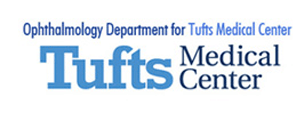PRK, or photo refractive keratectomy, is a refractive procedure that is used to treat nearsightedness, farsightedness, and astigmatism. It is somewhat similar to LASIK surgery, but does not involve the creation of a corneal flap. PRK offers results that are similar to those achieved by standard LASIK surgery, but involves more postoperative discomfort and a longer healing time. PRK is often used on patients who are poor candidates for LASIK, such as those with large pupils or thin corneas.
The Procedure
When performing PRK at our Boston center, we first place anesthetic drops in the eye to prevent pain during the procedure. Next, we remove the surface layer of the cornea (the epithelium) and use an excimer laser to sculpt corneal tissue and correct the patient’s vision problem. As with LASIK, the procedure typically requires less than one minute per eye.
Following PRK, we place a bandage contact lens on the eye along with anti-inflammatory and antibiotic eye drops. The contact lens must remain on the eye until two to three days after surgery, giving the outer layer of the cornea adequate time to heal. Patients may be required to use eye drops or other topical medication for up to six months following surgery.
Wavefront PRK
In addition to standard PRK, we are also pleased to offer customized wavefront PRK at our Boston practice. The procedure is very similar to the one described above, but involves the use of wavefront technology to design the treatment. After producing a wavefront map of your eye, we will use the map to tailor your laser treatment. Patients who undergo wavefront PRK generally have a better quality of vision than those who undergo standard PRK. Please visit our technology page for more information about the wavefront technology we utilize at our practice.
General Considerations
- PRK is associated with more postoperative pain than LASIK surgery. Many patients report some discomfort during the first 24 to 48 hours following surgery.
- It can take between three and six months for patients to achieve optimal vision following PRK surgery.
- We typically only treat one eye at a time, though it is possible to treat both at once.
- Patients who wear contact lenses will be asked to discontinue contact lens wear in the days or weeks prior to surgery.
Possible Risks/Side Effects
As with other types of refractive surgery, there are possible complications involved with undergoing PRK. Most complications are similar to potential complications of LASIK surgery. These include:
Dry eyes
- Visual disturbances such as night vision problems, haze, halos, and glare
- Infections following surgery
- Incomplete correction
PRK patients should be aware that they face a slightly greater risk of eye infection, scarring, and unpredictable healing of the cornea. However, serious complications following PRK, or any refractive procedure, are rare.
If you believe you may be a good candidate for PRK, please contact our Boston practice to set up a pre-surgery consultation.




